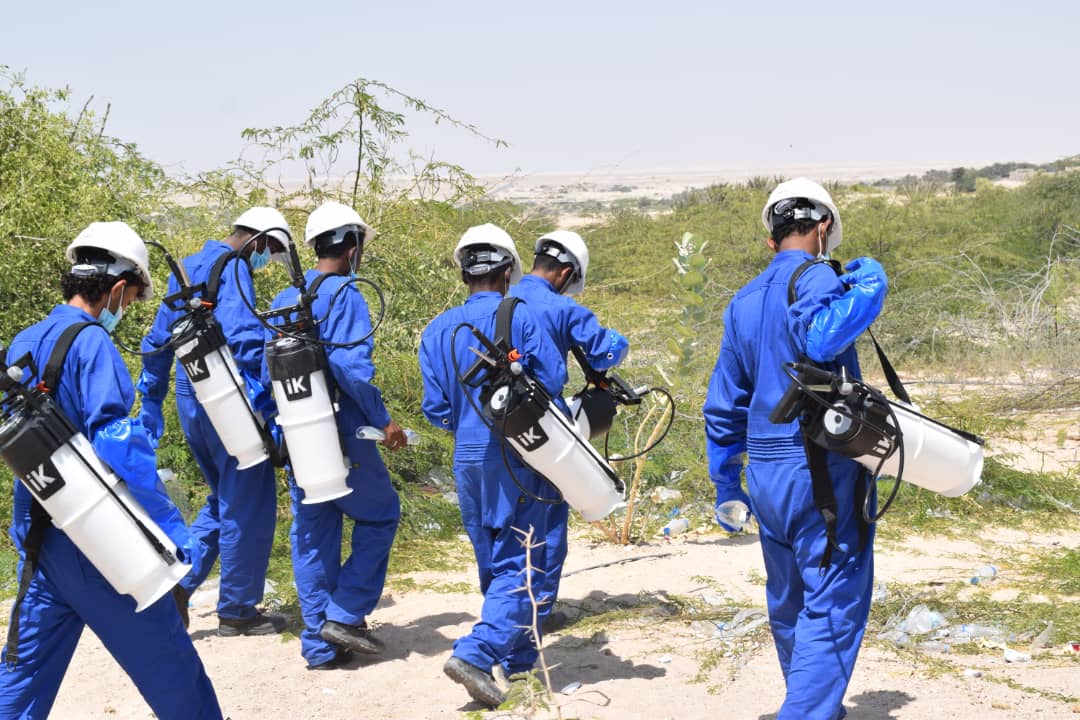
23 April 2023, Sana’a – More than 21 million people in Yemen are estimated to live in areas at risk of malaria, with more than 1 million malaria cases estimated to occur every year.
To curb the huge threat to health posed by the disease, WHO recommends indoor residual spraying (IRS) and use of insecticide-treated bed nets as core vector control interventions in malaria-endemic areas.
Before the campaign, detailed microplanning was conducted based on WHO criteria for IRS application. The majority of houses fitted the criteria and the vector was susceptible to the insecticides proposed to be used in the campaign.
The 54 districts were reclassified into 27 spraying regions based on geographical reconnaissance and geocoding. An additional 243 819 internally displaced people were covered in Abs district in Hajjah governorate during implementation of the campaign.
The campaign involved 1854 spraying workers, 473 spraying team leaders and 109 field supervisors. Around 500 female community health and education volunteers also participated in the campaign, with funding from other sources via WHO.
WHO will build on these results by assessing the climate-related risks of malaria and other climate-sensitive diseases, supporting the authorities to develop a national strategy for vector-borne diseases, producing rapid diagnostic tests and treatment supplies, and distributing insecticide-treated nets and conducting further campaigns as needed.


